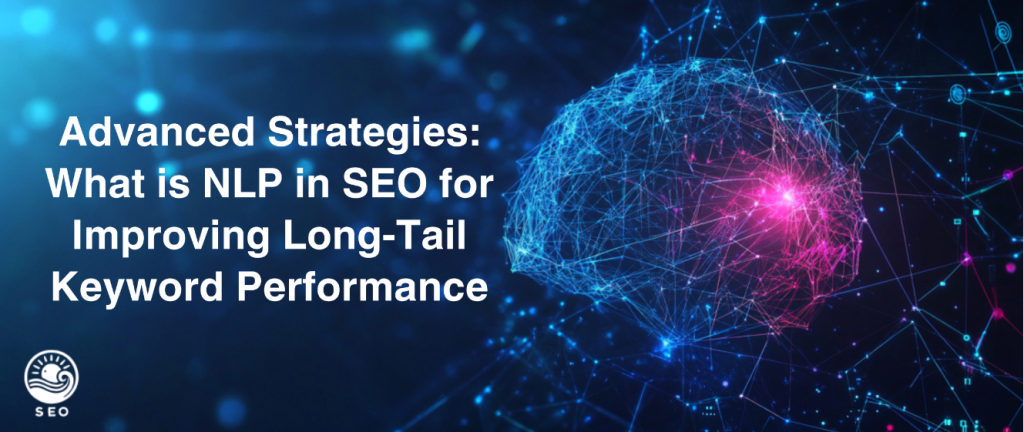
In the ever-evolving world of digital marketing, integrating Natural Language Processing (NLP) into SEO strategies marks a significant leap forward. This blog post delves into how NLP, a blend of computer science, artificial intelligence, and linguistics, can be a game-changer for improving the performance of long-tail keywords. Let’s break down these advanced strategies in a way that’s as engaging as it is informative.
What Exactly is NLP?
At its core, NLP involves teaching machines how to understand human language. The goal? To mimic the human ability to interpret context and nuances. When applied to SEO, NLP helps algorithms grasp the actual intent behind searches, improving how search engines respond to queries.
The Significance of Long-Tail Keywords
Long-tail keywords are more specific phrases that shoppers will likely use when they’re closer to the point of purchase or when using voice search. But why focus on them? They are less competitive and highly targeted, offering better conversion rates.
How NLP Elevates Long-Tail Keyword Performance
Understanding User Intent
NLP excels in deciphering the context and intent behind search queries, ensuring that long-tail keywords match user intent more precisely. This means more relevant traffic and a better user experience.
Semantic Search Enhancement
By analyzing the relationships and semantics of words, NLP can boost the relevance of content by including various synonyms and related phrases, broadening the reach without stuffing keywords.
Implementing NLP Strategies in SEO
1. Keyword Optimization
- Use NLP tools to analyze keyword relevance and search intent.
- Optimize content to cover related topics that NLP identifies as relevant.
2. Content Relevance
- Employ NLP to ensure content answers complex questions and satisfies user queries.
- Enhance readability and engagement by matching the language style preferred by your target audience.
3. Sentiment Analysis
- Utilize NLP to gauge the sentiment of content or user reviews, adjusting strategies to align with consumer emotions.
Challenges in NLP Implementation
While the benefits are clear, implementing NLP isn’t a challenge. To harness its power effectively without being overwhelmed by its complexity, a good understanding of the technology and the underlying SEO principles is required.
Future Trends of NLP in SEO
The future looks promising, with advancements in AI and machine learning driving NLP capabilities. We’re looking at more intuitive, conversational interactions with search engines, making SEO an even more dynamic field.
Wrapping Up
As we’ve explored, integrating NLP into your SEO strategy for long-tail keywords can significantly boost your site’s visibility and user engagement. Now that you’re armed with this knowledge, why not take your SEO efforts to the next level?
Practical Tips and Insights (Table)
| Strategy | Description | Expected Outcome |
| Contextual Linking | Enhance connections between posts to improve site structure. | Better crawlability and indexation. |
| Topic Modeling | Use NLP to identify themes and subtopics in your content. | Greater topic authority. |
| User Engagement | Tailor content to user behavior patterns identified by NLP. | Increased dwell time and lower bounce rates. |
Strategy Description Expected Outcome
Contextual Linking Enhance connections between posts to improve site structure—better crawl ability and indexation.
Topic Modeling Use NLP to identify themes and subtopics in your content. Greater topic authority.
User Engagement Tailor content to user behavior patterns identified by NLP. Increased dwell time and lower bounce rates.
FAQs on NLP in SEO
- What makes NLP essential for modern SEO?
NLP allows for a deeper understanding of search queries, making your SEO efforts more effective and targeted.
- Can NLP help with all types of keywords?
Yes, NLP can enhance both short-tail and long-tail keywords. Still, its impact is particularly significant with long-tail due to their specificity.
- How does NLP affect voice search?
NLP improves how voice searches are interpreted, ensuring that verbal queries translate into accurate search results.
- Are there any tools to help integrate NLP into SEO?
Several tools, including Google’s Natural Language API, offer ways to integrate NLP into your SEO strategies.
- How can I start implementing NLP in my SEO strategy?
Begin by understanding your audience’s search intent and using NLP tools to analyze and optimize your content.
By embracing these advanced strategies and exploring the full potential of NLP in SEO, you can dramatically improve how effectively your site attracts and engages users. Remember, the key to success in SEO is not just understanding the technology but also how it can better serve your audience.
